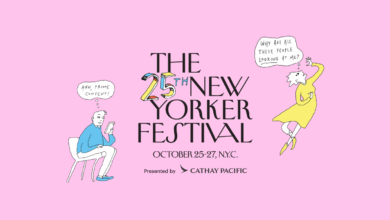For Iowa Voters, the Endless Caucuses Ended Too Soon

Around 6 P.M. on Monday, January 15th, people started trickling into a gymnasium at the Horizon Events Center, in Clive, Iowa, the biggest precinct in the state. It was one of the 1,657 caucus sites in Iowa where Republicans gathered. Donald Trump signs were planted in piles of snow in the parking lot; elsewhere in the complex, a series of kids’ basketball games was in full swing. The event-center bar, which advertised nine-dollar tall boys, was closed for the evening.
Throughout the weekend, a quarter of the respondents in the Iowa Poll said they could still be persuaded. “We’re not surprised by the undecideds,” Sam Clovis, Trump’s 2016 campaign co-chair, told me beforehand. “They’ll sit down and they’ll start talking to their neighbors. When you go to caucus, that three-minute speech somebody stands up and gives for a candidate will sway people.”
Caucus captains had prepared short speeches to deliver on behalf of their candidates; if high-profile surrogates showed up, they’d end up dethroned. “I was going to spend time practicing,” Rick Krause, a caucus captain for Nikki Haley in Blundstone boots and a Nikki T-shirt, told me. “But I got the call around 10 A.M.—‘Nikki is coming. We don’t need you.’ ” He went on, “I was relieved in some ways. I had put in my own twists on some of the things she’s saying on the campaign trail—I was also going to mention chaos and vengeance—but one of my fears was that I’d get booed.”
In the auditorium, attendees picked up their ballots—small paper rectangles—and made their way to folding chairs. A man with a Nikki sticker chatted with a woman who wore a Trump sticker, while his wife sat beside him knitting. Snippets of their exchange:
About twenty minutes before the start time, Vivek Ramaswamy came in through the side door of the gymnasium. He shook hands with a group of teen-agers in MAGA hats. “I sang the national anthem at an event you had,” one of them told Ramaswamy. “I hope I can convince you tonight!” Ramaswamy said. I turned around and there was Asa Hutchinson, still in the race, also offering to shake hands with people.
Party officials passed through the crowd collecting the paper ballots into plastic bins. (Unlike the old Democratic caucuses, G.O.P. caucus-goers have a secret ballot and don’t have to stand in a certain part of the room to indicate which candidate they’re supporting.) A few minutes after 7 P.M., the doors to the gym were closed. “Help us exhibit no guile towards one another,” the m.c., speaking from a microphone onstage, said. It turned out that Haley wouldn’t be the only surprise speaker. The attendees were in store for a retread of stump speeches—abbreviated to five minutes—that many of them had seen a handful of times at town halls. Asa Hutchinson was up first: “Let’s rebuke the media tonight and affirm my role in the Party.”
“O.K., our next speaker,” the Party chair said, “is . . . Donald Trump?” Trump emerged from the wings, entering, for once, with no music.
“A farmer has such incredible talent,” Trump said, about Iowa, but mostly he talked about “Crooked Joe Biden” and his exit from Afghanistan, and how Biden couldn’t have won in 2020. “You didn’t lose!” people around the precinct screamed. (In entrance polls, sixty-six per cent of Trump supporters said they didn’t think Biden had won the Presidency.)
Next was Ramaswamy, who got nearly as much applause and warmth as Trump. Then Haley was escorted in, wearing what her team has called her President Barbie pink jacket. “We built more BMWs than any place in the world. . . . We brought in five international tire companies,” she told the precinct, referring to South Carolina.
Right when Haley took the stage, the Associated Press called the caucuses for Trump, just as Haley was telling the audience they can’t complain if they don’t vote. Ron DeSantis, rather awkwardly, was the only candidate who didn’t show up to Clive; he was alone in Dubuque. The Party chair introduced Chip Roy, the congressman from Texas campaigning with DeSantis, who would give his surrogate speech: “Here’s Chip Roy, someone making a heck of a name for himself as a national conservative leader!” There would be no Party business or deliberation with neighbors. By the time the caucus captains read out the results, tallied by hand on a piece of paper, most people had filtered out.
After months of G.O.P. candidates being photographed holding babies, eating ice cream, and gazing into hog pens, it was all over quickly. The pace was “highly disappointing and concerning,” the chair of the Iowa G.O.P. said, in a statement, remarking on how the A.P. had already called the results less than half an hour after caucus precincts had been called to order. “One of the key differences between the Iowa caucuses and a standard primary election is that Iowans have the chance to listen to Presidential candidates or their surrogates, and deliberate to make an informed decision. There was no need to rush one of the most transparent, grassroots democratic processes in the country.”




